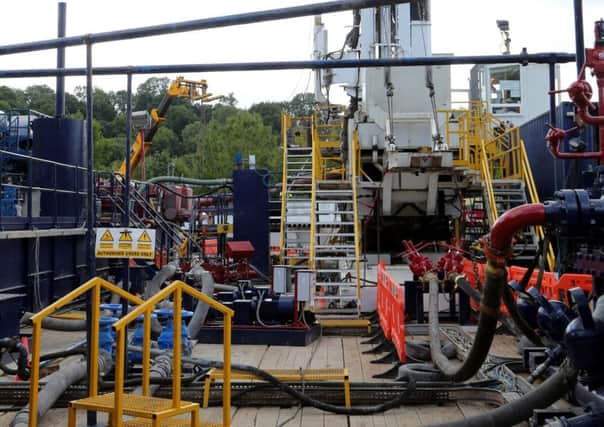Leader comment: Scotland needs to make mind up on fracking


By any measure we face a crisis in energy supply. Coal mining has been dramatically reduced. Scotland has no coal-fired power stations left. The fate of the controversial new Hinkley C nuclear plant is under review. The fall in the pound in the wake of the Brexit referendum vote has made imported energy that much more expensive. Offshore renewable energy plans have been all but abandoned due to high cost and technical difficulties. And onshore wind farms have to fight a barrage of local opposition.
Shale gas extraction has transformed the US economy – and with little evidence of loss of human life and livelihoods. Yet here at home few recent developments in the energy sector have proved more controversial.
Advertisement
Hide AdAdvertisement
Hide AdIt has spawned widespread local protests and concerns over safety and environmental despoilation. The Scottish government, fearful of a backlash, has imposed a moratorium on “unconventional energy recovery” – effectively code for fracking – until it says it can better assess the risk.
It was widely suspected this was a means of kicking the issue into the long grass.
This approach can only hold for so long. We urgently need to address our energy needs. And with this in mind, Prime Minister Theresa May is proposing to give relevant local households a direct economic stake in any fracking that takes place.
A shale wealth fund is already in place.
The plan was to set aside up to 10 per cent of the tax proceeds from fracking to benefit communities hosting wells. Now the Prime Minister is considering paying the money directly to individual households instead of councils and local trusts. The new fund could deliver as much as £10 million to each community where wells are sited.
The government has not placed a figure on the amount potentially available to individual households, but initial indications suggest that it could be in the order of up to £10,000 each.
Green campaigners have lost no time in declaring that fracking carries environmental risks and that people will not accept “bribes”. But that must surely be for residents in designated communities to consider and decide.
At least this way the risk, if there is any, is balanced by both individual and collective gain. And the approach is in accordance with Mrs May’s stated preference that individuals and households should be able to enjoy a direct personal benefit from economic development being undertaken in their name, rather than the gains passing into the maw of general government expenditure.
All energy development has involved an element of risk - in nuclear power development, oil extraction and even biomass. And how many deep level coal mines would have been developed today under our far more rigorous health and safety standards?
Advertisement
Hide AdAdvertisement
Hide AdWhat is clear beyond doubt is that decisions now have to be made quickly as the economic imperative gets greater.
There is sense in the Scottish government’s stance on fracking but it needs to make good on that stance by coming up with a decision – soon.
Thai vote is not democracy
On the face of it, voters in Thailand have given a clear thumbs-up to a new draft constitution proposed by the military government. Unofficial estimates claim that just over 61 per cent voted in favour. Voters also approved a second measure on the ballot, giving the appointed senate involvement in selecting a prime minister.
All above board and a credible display of democracy in action? Well no. Campaigning against the draft constitution was banned and dozens of people were detained. About 200,000 police officers were deployed to maintain order. Little wonder turn-out was low.
Thailand’s biggest political parties rejected the constitution and independent observer groups were denied accreditation by the election commission to monitor the vote.
The result is that a wholly-appointed Senate and other unelected bodies will be given a decisive say over Thai politics with a general election promised for next year under dubious rules.
Parties linked to former Prime Minister Thaksin Shinawatra have won every election, but their governments have all been ousted either by court rulings or military coups. He fled into self-imposed exile in 2008 to escape a criminal charge of abusing his power, for which he was later convicted in absentia.
It is what some might describe as “a guided democracy”. But this looks a lot more like “guidance” – and with very little democracy – particularly when campaigners against the guidance have been locked up. In these circumstances no-one can have any faith in the result. This is not democracy as we know it. Those choosing to spend their tourist pounds there might want to now think differently.